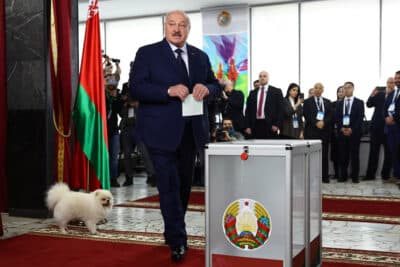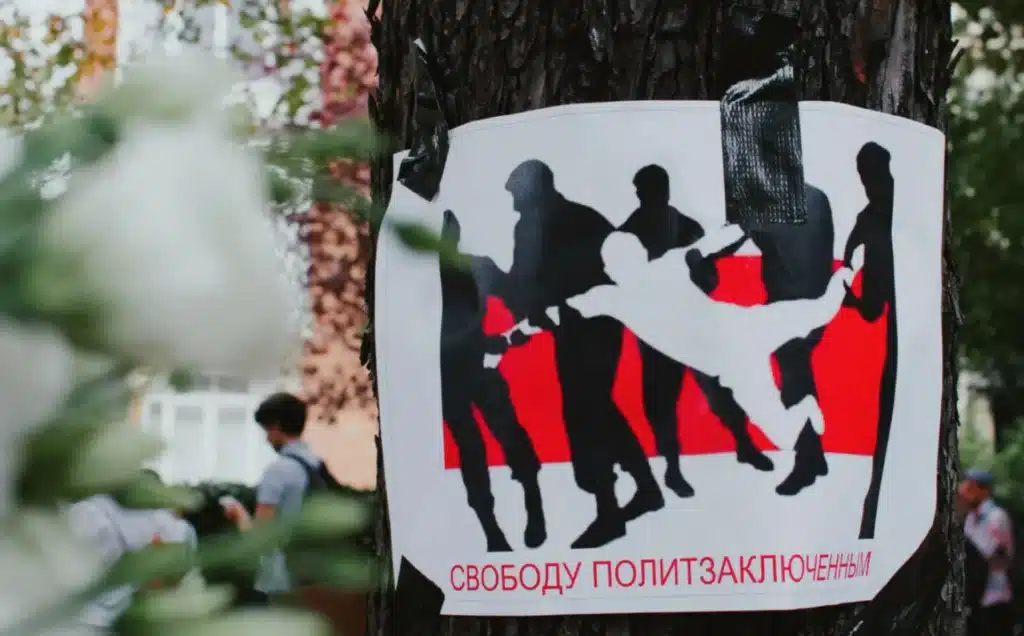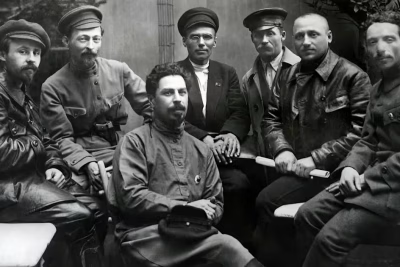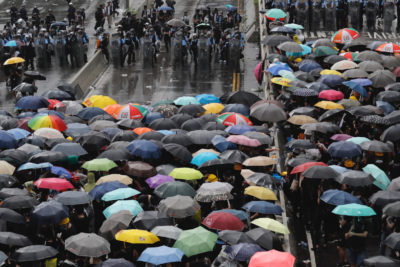
Media Freedom in Belarus 2025: Independent Journalism Under Siege

- 📉 The Collapse of Free Media in Belarus
- 🌍 Independent Media in Exile
- 🔒 Accessing Information Under Censorship
- 📺 Propaganda and State Media Control
- 🌐 International Pressure and Support for Journalists
- 📢 The Role of Citizens in Preserving Free Press
- 🔮 The Future of Media Freedom in Belarus
- ❓ FAQs: Media Freedom in Belarus 2025
In 2025, media freedom in Belarus remains virtually non-existent. Under President Alexander Lukashenko’s regime, state-controlled propaganda dominates television, radio, and print media, while independent journalism has been driven underground or forced into exile.
What was once a modestly diverse media environment has become one of Europe’s most repressive, with the government labeling critical news outlets as “extremist organizations” and arresting journalists simply for doing their jobs.
📉 The Collapse of Free Media in Belarus
Following the mass protests of 2020, Lukashenko unleashed an unprecedented crackdown on press freedom:
- Independent newspapers shuttered: Outlets like Tut.by were forcibly closed, with their websites blocked domestically.
- Mass arrests: Reporters covering demonstrations were detained, beaten, and in many cases, handed prison sentences under fabricated charges.
- Equipment seizures: Newsrooms were raided, cameras and computers confiscated, and journalists interrogated by the KGB.
By 2025, the state’s monopoly on domestic media is nearly absolute, leaving citizens reliant on heavily censored television and state-run news agencies like BelTA.
🔗 Read more: Belarus KGB in 2025: How the Security Service Enforces Lukashenko’s Grip on Power
🌍 Independent Media in Exile
Despite repression inside Belarus, independent journalism survives abroad. Platforms like:
- Belsat TV (based in Poland),
- Euroradio (broadcasting from Lithuania), and
- Nexta (operating largely via Telegram)
remain lifelines of information for Belarusians. These outlets publish investigative reports, human rights documentation, and political analysis that state media suppresses.
However, operating in exile poses challenges:
- Limited access: Journalists cannot report freely from inside Belarus.
- Risk for sources: Citizens providing information to exiled media risk being tracked and prosecuted.
- Funding struggles: These outlets rely on donor support and NGOs to continue operating.
🔒 Accessing Information Under Censorship
Inside Belarus, accessing independent news is increasingly dangerous. The government criminalizes even passive consumption of banned outlets:
- “Extremist” designation: Following or sharing content from channels like Nexta can result in up to 7 years in prison.
- VPN usage: Citizens use VPNs and encrypted browsers to bypass firewalls blocking independent sites.
- Telegram channels: Encrypted messaging apps have become primary news sources, despite being closely monitored by the regime.
This has created a climate of fear, where reading the wrong article could lead to imprisonment.
📺 Propaganda and State Media Control
Lukashenko’s government uses state-controlled TV and press to shape public opinion:
- Centralized narratives: Daily broadcasts glorify Lukashenko, vilify Western countries, and depict the opposition as foreign-backed “traitors.”
- Disinformation campaigns: State outlets distort coverage of Ukraine, downplay sanctions, and claim economic stability despite evidence to the contrary.
- Mandatory broadcasts: Factories, schools, and state offices are required to air official news segments.
For many rural citizens without internet access, this propaganda is their only source of information.
🌐 International Pressure and Support for Journalists
Despite domestic repression, international organizations continue to shine a spotlight on Belarus’s media crisis:
- Reporters Without Borders (RSF) ranks Belarus among the world’s least free countries for journalists.
- The OSCE has repeatedly condemned the regime’s persecution of independent media.
- NGO programs: Initiatives like the EU-funded Media Freedom Rapid Response provide equipment and safe relocation for exiled reporters.
Yet, these measures face limitations, as Lukashenko’s regime refuses to engage with Western human rights demands.
📢 The Role of Citizens in Preserving Free Press
Despite risks, ordinary Belarusians play a key role in sustaining independent journalism:
- Secretly recording evidence of police violence.
- Smuggling documents to journalists abroad.
- Supporting banned media through small online donations, often using cryptocurrency to avoid detection.
These grassroots efforts ensure that truthful reporting continues to exist, even under an oppressive state apparatus.
🔮 The Future of Media Freedom in Belarus
Unless significant political changes occur, media freedom in Belarus will remain in exile. The battle for uncensored information now hinges on digital platforms, VPN accessibility, and international support for journalists abroad.
In 2025, the question is not just whether journalism can survive—but whether it can continue reaching those who need it most: the people still inside Belarus.
❓ FAQs: Media Freedom in Belarus 2025
Q1: What is the state of media freedom in Belarus in 2025?
Belarus remains one of the world’s most repressive environments for journalists, with virtually no free media operating inside the country.
Q2: Which independent media still cover Belarus?
Key outlets include Belsat TV, Euroradio, and Nexta, all operating from exile.
Q3: How do Belarusians access uncensored information?
They rely on VPNs, encrypted browsers, and Telegram channels, often at personal risk.
Q4: What penalties exist for following banned media?
Citizens can face fines, harassment, and prison sentences of up to seven years for consuming or sharing “extremist” content.
Q5: How is the international community supporting journalists?
NGOs and EU programs provide relocation, legal aid, and funding for exiled media organizations.





